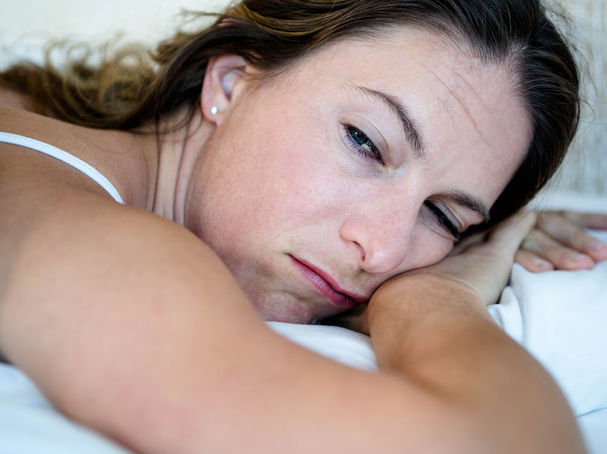It sounds amazing, but sleep becomes a luxury not everyone can enjoy. Sleep is one of the dimensions in which any emotional difficulty first appears. In turn, not getting a good night’s sleep creates different risks and accentuates several existing problems.
According to the World Health Organization (WHO), a normal adult needs to sleep between 7 and 8 hours per night for optimal physical and mental rest; in turn, the effects of not sleeping can be very serious. warns against one in particular: spending a single night without sleep can lead to loss of brain tissue.
“Happiness for me is good health, sleeping without fear and waking up without anxiety. “Francoise Sagan?
When sleep hours are not enough or you cannot sleep soundly, the person literally gets nervous, is often very irritated or particularly sensitive to any type of stimulus, as has been confirmed in several researches on the subject.
Recently there was research on sleep at Tel Aviv University, which was then published in the Journal of Neuroscience, which has shown that those who do not sleep enough perceive and feel daily reality differently.
The research was based on a group of 18 adults, who were evaluated after a good night’s sleep and then another after a night of insomnia. The test consisted of looking at a series of images, some of which were “emotionally positive” (a teddy bear). bear, for example), other?emotionally negative? (a mutilated body) and others that were neutral (covered, chair, etc. ).
All participants were monitored with electroencephalograms to observe their brain activity. The final conclusion was that, without good sleep, the participants’ brain simply could not emotionally differentiate the images. The reaction was practically the same with positive, negative and neutral images. According to these scientists, all this would indicate that there is a lack of emotional control.
Another study from the University of Berkeley showed that sleeping 2 hours or more than necessary severely affects the prefrontal lobe, which is the region that controls emotions, and the result is that lack of sleep leads to more irrational and primitive responses.
Matthew Walker, director of research, noted that you don’t sleep well?He added that sleep restores emotional circuits and helps better address the challenges of everyday life.
Walker also stated that although it is generally thought that lack of sleep leads to a state of numbness and passivity, the truth is that the opposite occurs: people who do not sleep do not become more passive, but 60% more reactive, that is, , more violent and uncontrolled.
Poor sleep also leads to other problems. Emotional balance is compromised and the ability to respond to stimuli is vulnerable, which means that when we don’t have a good sleep rate the risk of accident is higher, it is estimated that sleepless driving is equivalent to driving in a drunken state.
On the other hand, thought patterns are also significantly altered by lack of sleep, it is much harder to process the information you receive and make decisions, a survey showed that medical errors increase by 400% for health professionals working on 24-hour shifts. It has also been concluded that those who sleep less than necessary can develop memory problems.
It’s not just the brain that’s severely affected by lack of sleep. Not getting a good night’s sleep also increases the chance that your body will start suffering directly from the disease. We know, for example, that the immune system is weakened. There is also data to conclude that lack of sleep affects diabetes, cancer and obesity.
That said, it’s worth assessing whether you sleep well, getting a good night’s sleep is a valuable asset that we need to take care of and preserve, it’s certainly one of the great pillars of mental health.
Images courtesy of Alex Stoddart, Miruna Ivanescu, Enzzo Barrena.

